Fall 2018 English 1130 Paper 1: Dweck's Implicit Theories Analysis
VerifiedAdded on 2023/06/04
|5
|1193
|303
Essay
AI Summary
This essay provides a rhetorical analysis of Carol Dweck's work on implicit theories of intelligence, contrasting the scholarly article "Implicit Theories of Intelligence Predict Achievement across an Adolescent Transition: A Longitudinal Study and an Intervention" with the more accessible article "Brainology." The essay examines how Dweck adapts her language, argument structure, and presentation of evidence to suit different audiences. It highlights the use of scientific terms and data in the research article versus simpler language and headings in "Brainology." The analysis focuses on the core concepts of incremental and entity theories, fixed and growth mindsets, and how Dweck communicates these ideas to both academic and general audiences, emphasizing the implications for student motivation and academic achievement. The essay concludes by underscoring the significance of adapting communication strategies to effectively convey complex psychological concepts to diverse audiences. The essay also includes an analysis of the assignment brief and guidelines, highlighting the key objectives, format, and structure of the assignment.
1 out of 5
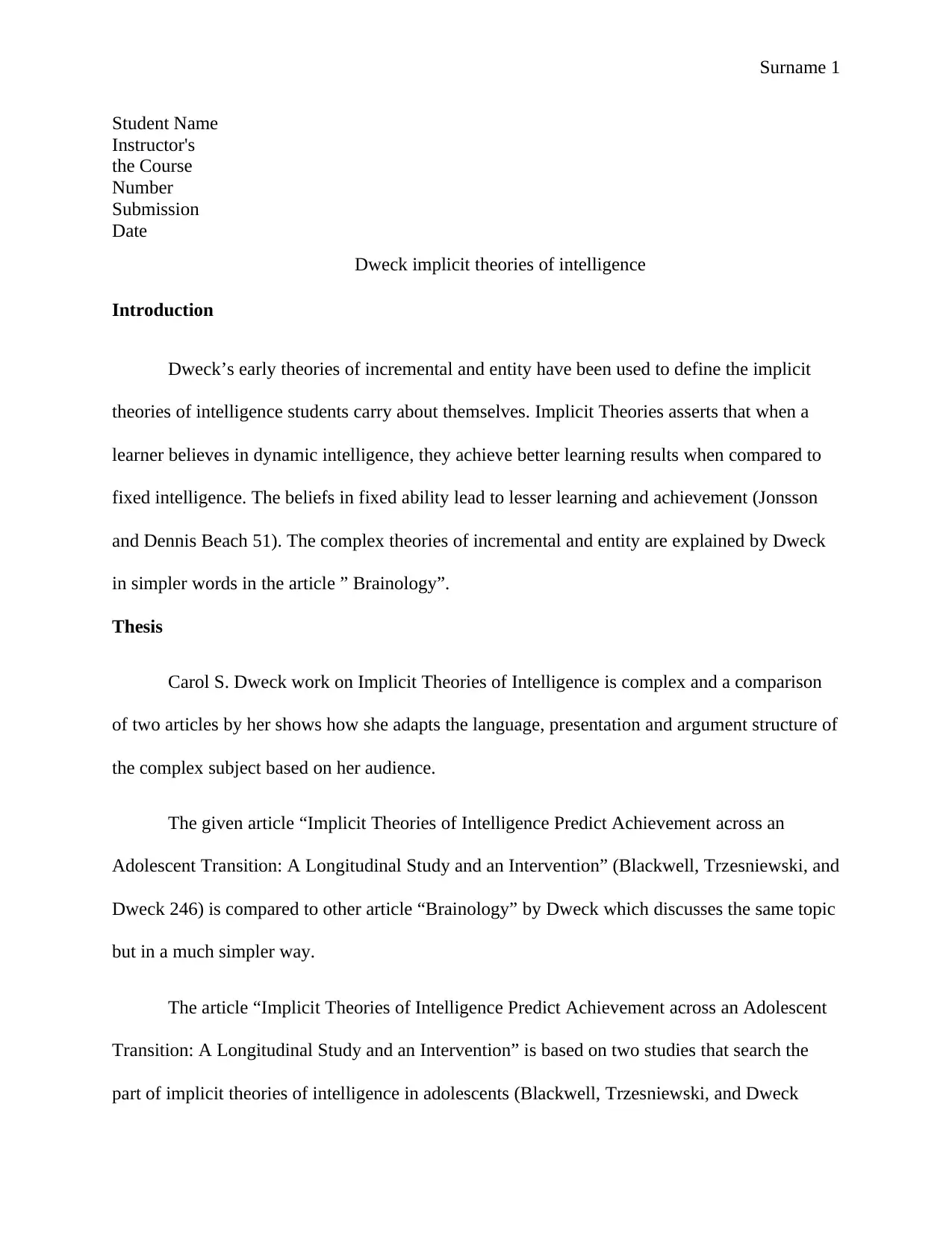
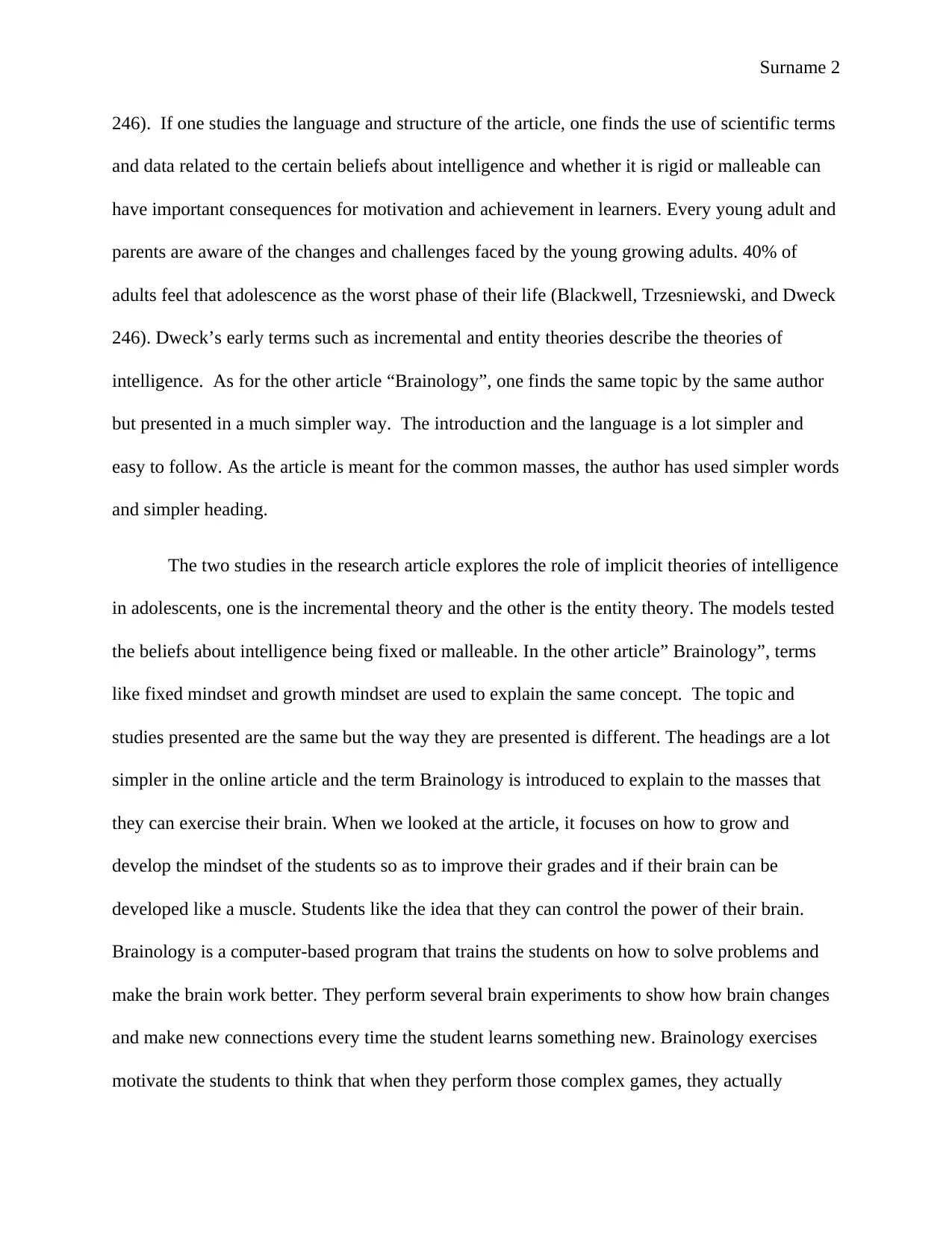
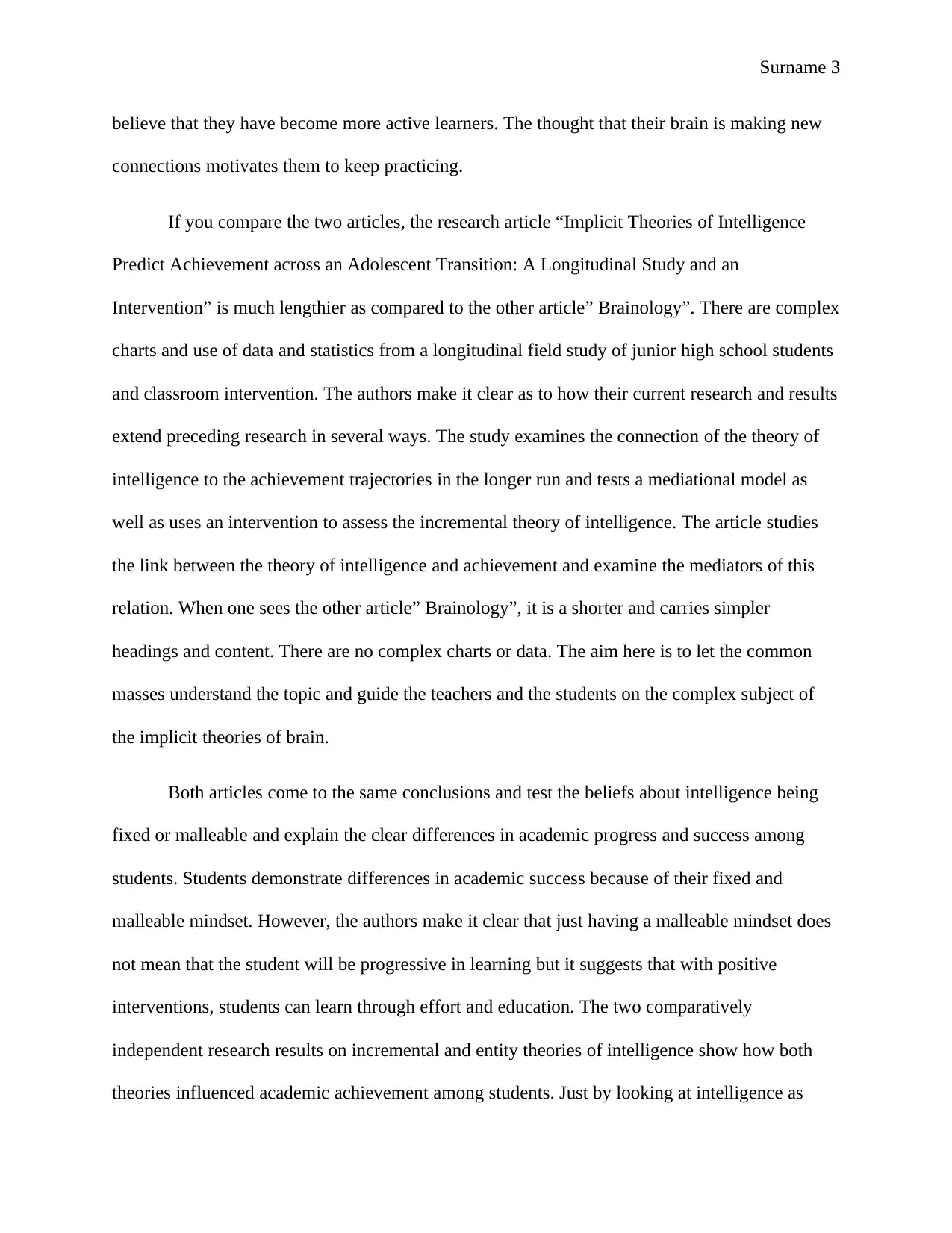

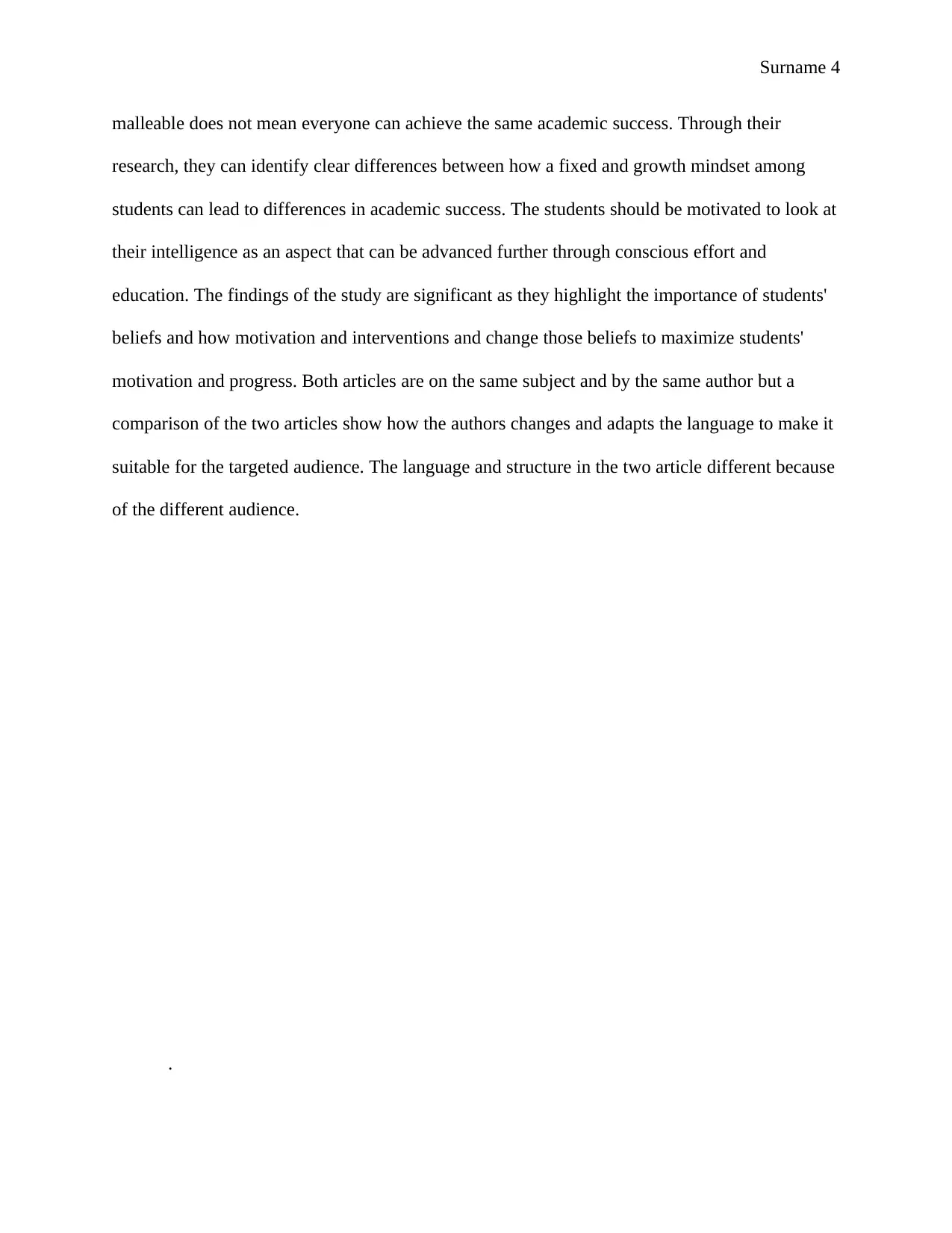
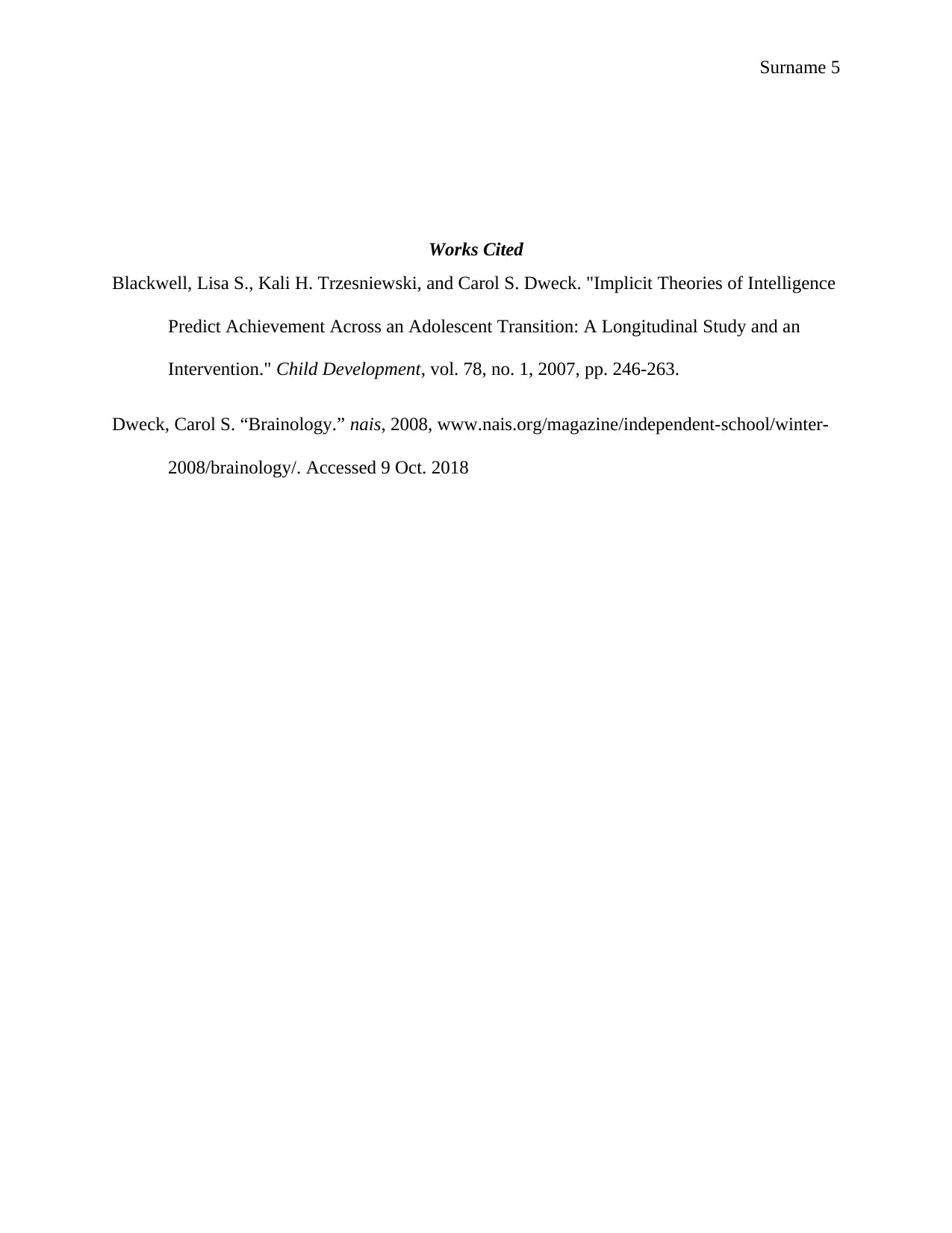
![[object Object]](/_next/static/media/star-bottom.7253800d.svg)